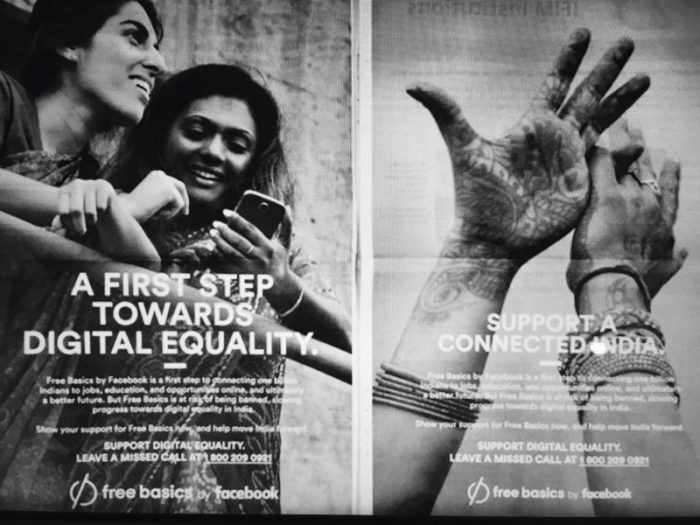
What hath Facebook wrought?
Its Free Basics program now offers free but limited Internet surfing in 63 countries around the world through partnerships with local telecoms communities. (You may also know the initiative by its most prominent setback, in India.) In essence, in regions where Free Basics operates, a set of Facebook-curated websites — including news, health, and employment sites — can be available for mobile users to access without data charges.
But a close review of six countries where Free Basics operates by Global Voices researchers reveals significant hiccups in Facebook’s stated goal of bringing Internet access to developing regions of the world. Technologists and activists with the citizen media and research group conducted research in Colombia, Ghana, Kenya, Mexico, Pakistan, and the Philippines this past spring and found that not only did the app offer a very limited window of local news content and local languages, the “data and content limitations built into Free Basics are largely artificial and primarily aimed at collecting profitable data from users.”Among the sites that were almost always featured by default in the main page of the app (Tier One) in the regions tested, most were from for-profit U.S.-based companies (e.g., Bing from Microsoft, BabyCenter by Johnson & Johnson).
We do not know why content on Free Basics is offered in two separate tiers, giving users instant access to Tier One, while leaving the other offerings tucked away. While some services featured in Tier One pertained to the target country or region, several of the standard applications featured in the first screen had no special relevance to the regions in which they appear. When we asked Facebook why the app has this distinction, they declined to answer.
The individual case studies conducted by Global Voices researchers revealed other weaknesses. In Mexico’s version of Free Basics available via Telcel, the sole local site available in the top tier on the app is the website of the foundation of Carlos Slim — the CEO of Telcel.
The Philippines case study showed two different main news offerings are available depending on the mobile provider partner. Some Tagalog options were offered, but English was the dominant language of the apps featured (there are no versions of sites in other languages included):
There is no information about the criteria used by Free Basics and its telco partner (Globe or Smart) on how they selected the apps/websites featured on the main menu. Although this can be found on the “For Developers” page of the Internet.org website, this information is really geared towards technology developers, not towards the consumer. BBC is featured on Globe but not in Smart. Reuters is accessible at the main menu of Smart, but not in Globe. Sakay.ph is categorized as a learning app when it is more appropriate to describe it as a travel app. While news written in Tagalog is available, most of the news apps are written in English. Breaking news content is accessible but some apps like GMA News require the user to pay additional charges.
In the case study conducted in Kenya, an East African employment site shown in the Free Basics app main menu wasn’t actually accessible without data charges:
There is no aspect of the service that can be accessed free of charge within the Free Basics app. When one taps on the service on the main menu, the data charges prompt immediately appears. This negates the whole ethos behind the project as this service gives no value whatsoever to Free Basics users.
A Facebook spokesperson issued the following statement in response to the Global Voices report:
Our goal with Free Basics is to help more people experience the value and relevance of connectivity through an open and free platform. The study released by Global Voices, and the subsequent article in the Guardian, include significant inaccuracies. The study, based on a small group of Global Voices contributors in only a handful of countries, does not reflect the experiences of the millions of people in more than 65 countries who have benefited from Free Basics.
You can read the full Global Voices report and the six case studies here.